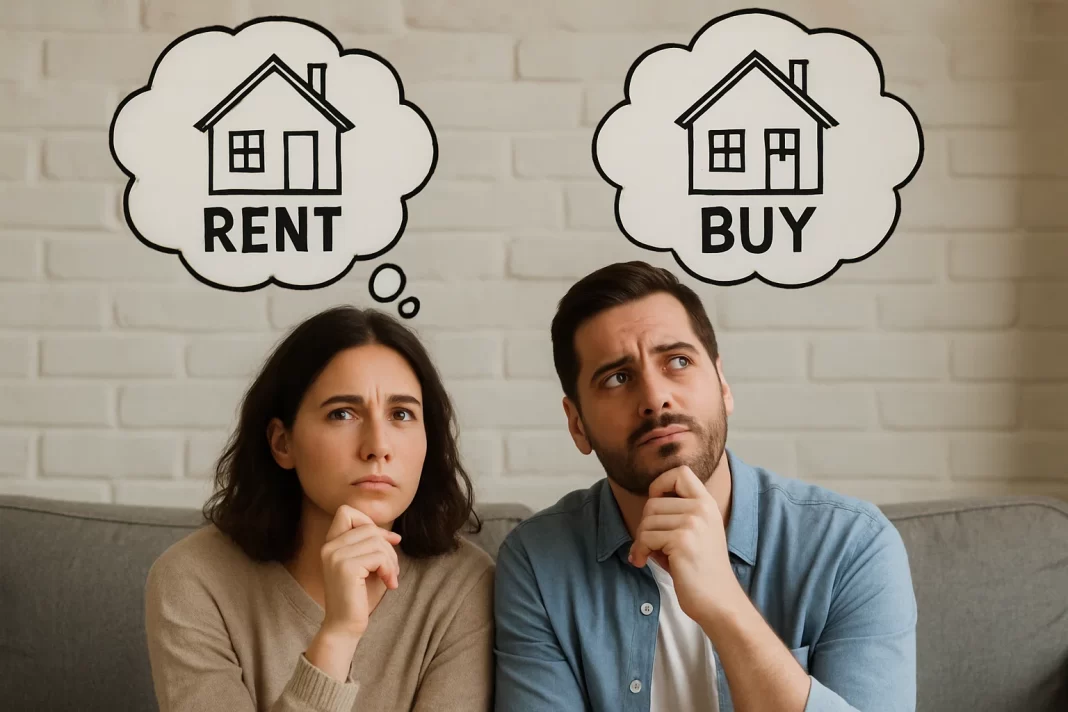In a housing market defined by volatility, high interest rates, and low inventory, the age-old question has taken on new urgency: Is it smarter to rent or buy in 2025?
For decades, buying a home was considered a cornerstone of the American Dream. But with median U.S. home prices hovering around $420,000, 30-year mortgage rates exceeding 6.5%, and property taxes rising across the board, many potential buyers are asking — is owning still worth it?
The answer, as with most financial decisions, is: it depends.
The Case for Renting: Flexibility and Cash Flow
Renters in 2025 are enjoying a surprising advantage: predictability. While rents have risen in the past few years, the rate of increase has cooled significantly. According to Zillow, national rent growth is below 3% annually — slower than inflation.
But the real power in renting lies in flexibility and liquidity:
-
No down payment. Instead of tying up $50,000+ in a mortgage down payment, renters can invest that capital into stocks, retirement accounts, or high-yield savings — some now offering over 5% APY.
-
No surprise expenses. Renters aren’t on the hook for roofs, water heaters, or surprise plumbing bills.
-
Geographic freedom. In a remote-friendly work environment, being untethered to a mortgage lets you chase opportunities — or better weather — with ease.
As personal finance expert Ramit Sethi puts it: “Renting is not throwing money away. It’s paying for flexibility.”
The Case for Buying: Equity, Stability, and Tax Perks
Still, ownership has undeniable advantages — especially over the long haul.
Buying a home locks in fixed housing costs, builds equity, and often delivers significant tax benefits. Homeowners who itemize can deduct mortgage interest and property taxes. And capital gains exclusions mean you can profit up to $500,000 tax-free on the sale of a primary residence (if you’re married and meet the ownership/residency test).
Let’s not forget:
-
Rent is forever. A mortgage eventually ends; rent does not.
-
Forced savings. Each mortgage payment builds ownership — a form of “automatic” wealth-building.
-
Appreciation. Real estate has historically appreciated 3–5% per year, though that varies by market.
If you plan to stay put for 7–10 years, buying can often beat renting in total return — especially in high-demand cities where rents rival mortgage payments.
Financial Rule of Thumb: The 5% Rule
Economist and investor Ben Felix offers a smart heuristic: if the annual cost of owning a home (mortgage interest, maintenance, property taxes, etc.) is less than 5% of the home’s value, it’s likely a better deal than renting.
For example:
-
A $500,000 home × 5% = $25,000/year ($2,083/month).
-
If comparable rent is higher than that, owning may be the better value.
-
If rent is lower, renting could offer more financial flexibility.
But this assumes you’re investing the money you save by renting — not just spending it.
Lifestyle Considerations Matter Too
It’s not all spreadsheets and spreadsheets. Some factors can’t be quantified:
-
Pride of ownership: There’s emotional value in making a place your own.
-
Stability: Kids, schools, and community may make staying in one place essential.
-
Stress tolerance: Homeownership comes with surprises. Are you ready to be your own landlord?
On the other hand, some value the mental freedom of renting — no maintenance, no market worries, no commitment.
Final Verdict: It’s Not Rent vs. Buy — It’s Rent Smart or Buy Smart
The key isn’t whether you rent or buy — it’s whether you’re making the most of your money either way.
-
If you rent: save and invest aggressively. Don’t let flexibility turn into lifestyle creep.
-
If you buy: choose wisely, avoid overleveraging, and think long-term.
Homeownership is not a guaranteed wealth-builder, and renting is not a financial failure. In 2025, the smart move is whichever aligns best with your goals, lifestyle, and financial discipline.





